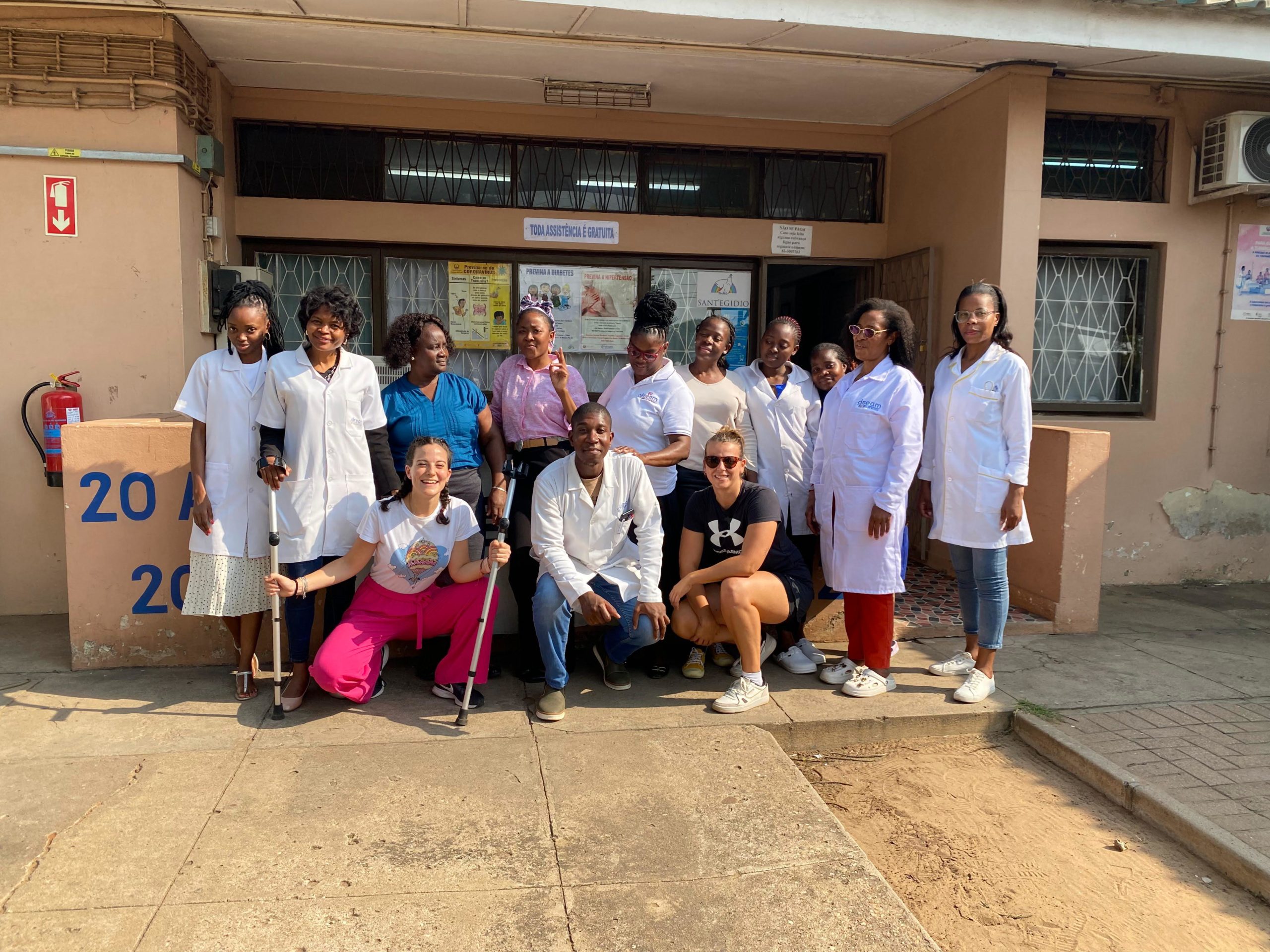Where aids are scarce, care grows
The story of Michela and Alice between Maputo and Bangui: when physiotherapy becomes training, ingenuity, and future.
In Africa, care goes back to the basics: hands, attentive eyes, simple words. Michela and Alice, two Italian physiotherapists, learned this between Maputo (Mozambique) and — for Alice — Bangui (Central African Republic), where every session is a small revolution made possible with very little. “We left with DREAM to bring the essentials of our profession back to the center: listening, technique, education. With what is available,” they explain.
In Maputo, training is the first therapy. “Crutches are not just a temporary support,” Alice explains. “If adjusted and used properly, they distribute weight, protect the injured limb, and speed up healing; if used incorrectly, they cause overload and postural imbalances.” With patients, work is done step by step: correct height, proper grip, walking rhythm, safety on uneven ground. Then they are given simple sheets with 2–3 daily exercises and, at each meeting, asked to demonstrate them: correcting immediately makes all the difference. Caregivers also become part of the therapy, learning small everyday gestures that count.
It was here that Michela and Alice met Arthur, a young man who arrived at the center missing a leg and with his crutches badly adjusted. Thanks to a fundraising effort, a suitable prosthesis was purchased and, after weeks of old-fashioned work — measurements, adjustments, balance, strength — the essential happened: he walked on his own. Today, he even plays soccer with his friends. “He is an example of how technique, relationships, and a few well-used tools can restore autonomy.”
In Bangui, the figure of the physiotherapist practically does not exist. This is why Alice, together with the DREAM Clinic, wants to launch a program dedicated to children with cerebral palsy and epilepsy: essential evaluations, training for caregivers and staff, simple and replicable protocols. Daily work is carried out with whatever is available: adapting aids, micro-sessions in shared spaces, visual sheets to take home. “Here punctuality and adherence are remarkably high,” Alice emphasizes. “For many, we are the only concrete reference point for a condition that limits their lives. They arrive on time, return for follow-ups, and ask how to continue at home.”
Even far from sophisticated equipment, physiotherapy reveals what it truly is: relationship, technique, education. And so — step by step — in Maputo and Bangui, care grows, even where aids are scarce.
If you would like to support missions like this, you can contribute with a donation to the DREAM centers: even a small gesture can turn into safer steps, well-done exercises, and regained autonomy.
